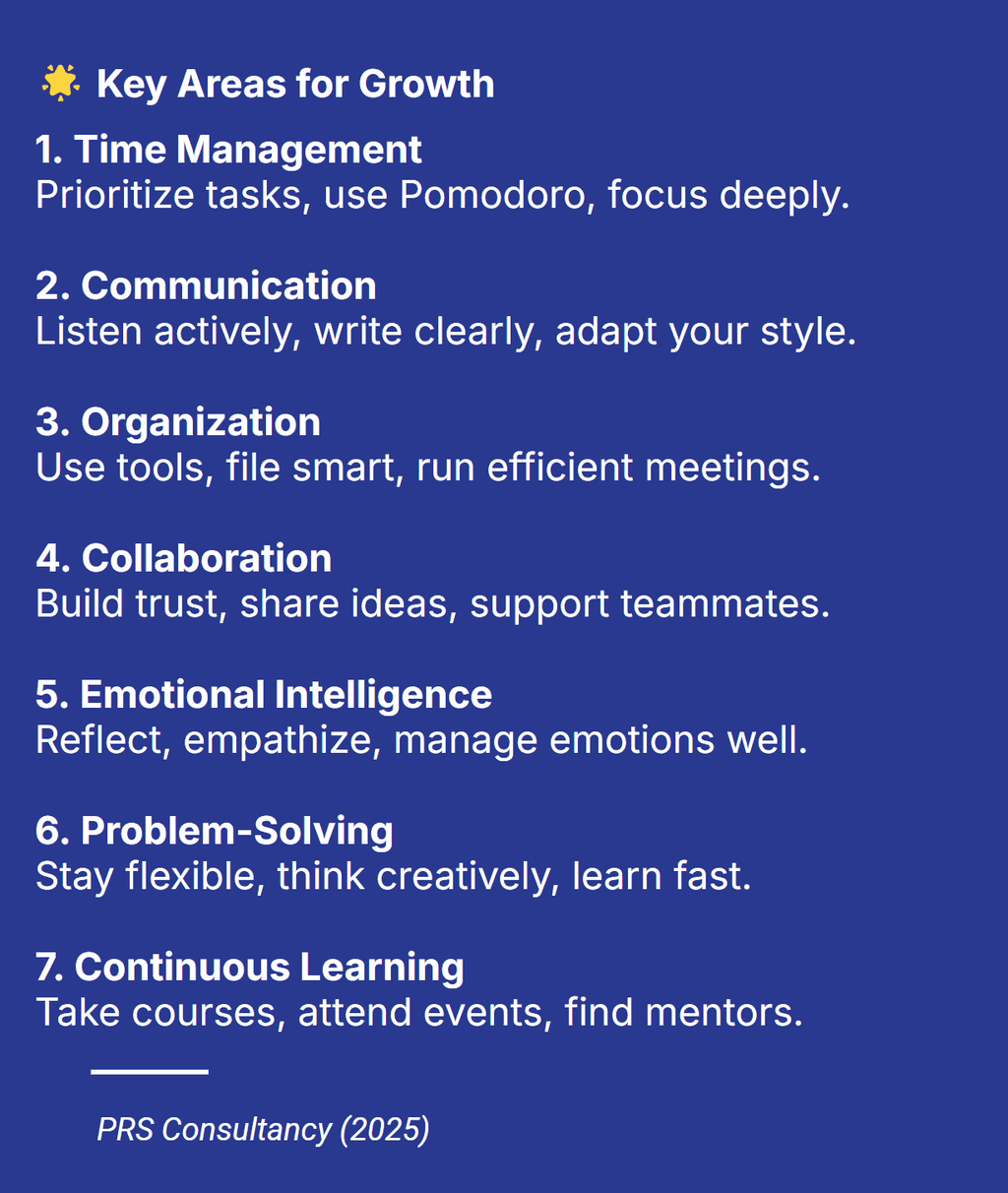Continuous improvement isn't just a buzzword—it's essential for professional growth and organizational success. Whether you're an entry-level employee or a seasoned manager, identifying and working on areas for improvement can significantly impact your career trajectory and workplace satisfaction.
What Are Areas of Improvement?
Areas of improvement represent specific skills, behaviors, or competencies that, when developed, can enhance your professional effectiveness and contribute to both personal and organizational success. These aren't weaknesses to be ashamed of, but rather opportunities for growth that demonstrate your commitment to professional excellence.
Why Focus on Professional Development?
Standing still means falling behind. Organizations value employees who take initiative in their professional development, as it shows dedication to excellence and adaptability. Moreover, focusing on areas of improvement can:
- Accelerate career advancement opportunities
- Increase job satisfaction and engagement
- Enhance workplace relationships
- Improve overall productivity and performance
- Foster innovation and problem-solving capabilities
Key Areas for Professional Growth
1. Time Management Mastery
Effective time management isn't just about getting more done—it's about achieving better results while maintaining work-life balance. Poor time management can lead to missed deadlines, increased stress, and diminished work quality.
Practical Improvement Strategies:
- Implement the Pomodoro Technique (25 minutes of focused work followed by short breaks)
- Use digital tools to track and prioritize tasks
- Block time for deep work and minimize distractions
- Regular review and adjustment of daily schedules
2. Enhanced Communication Skills
Communication forms the backbone of workplace success. Whether you're collaborating with team members, presenting to stakeholders, or handling customer interactions, strong communication skills are invaluable.
Development Approaches:
- Practice active listening during meetings
- Develop clear and concise writing skills for emails and reports
- Learn to adapt communication style based on audience
- Master the art of constructive feedback
3. Organizational Excellence
Strong organizational skills contribute to increased productivity and reduced stress. When you're well-organized, you can handle multiple responsibilities efficiently and maintain high-quality output.
Improvement Techniques:
- Create standardized filing systems for digital and physical documents
- Utilize project management tools for task tracking
- Establish regular cleanup and organization routines
- Implement effective meeting management practices
4. Collaborative Mindset
Modern workplaces thrive on collaboration. Developing strong teamwork skills can lead to better outcomes and more innovative solutions.
Key Focus Areas:
- Build relationships across departments
- Contribute actively in team discussions
- Share knowledge and resources freely
- Support team members during challenging projects
5. Emotional Intelligence Development
Emotional intelligence (EQ) plays a crucial role in workplace success. High EQ contributes to better leadership, stronger relationships, and more effective conflict resolution.
Growth Strategies:
- Practice self-awareness through regular reflection
- Develop empathy for colleagues' perspectives
- Manage emotions during challenging situations
- Build stronger professional relationships
6. Problem-Solving and Adaptability
In today's fast-paced business environment, the ability to solve problems creatively and adapt to change is essential.
Enhancement Approaches:
- Embrace challenges as learning opportunities
- Develop systematic problem-solving methodologies
- Stay current with industry trends and changes
- Practice flexibility in approach and thinking
7. Continuous Professional Development
Learning should never stop. Staying current in your field and developing new skills ensures long-term career success.
Action Items:
- Set aside dedicated time for learning
- Pursue relevant certifications
- Attend industry conferences and workshops
- Seek mentorship opportunities

Creating Your Improvement Plan
Step 1: Assessment
Begin by honestly evaluating your current strengths and areas needing development. Seek feedback from colleagues and supervisors to gain additional perspectives.
Step 2: Goal Setting
Create SMART goals (Specific, Measurable, Achievable, Relevant, Time-bound) for each area you want to improve.
Step 3: Action Planning
Develop specific action steps for each goal, including resources needed and potential obstacles to overcome.
Step 4: Implementation
Put your plan into action, tracking progress and adjusting as needed.
Step 5: Regular Review
Schedule periodic reviews to assess progress and make necessary adjustments to your development plan.
Embracing Growth Opportunities
Remember that improvement is a journey, not a destination. The most successful professionals maintain a growth mindset, viewing challenges as opportunities to learn and develop. Start by choosing one or two areas to focus on, and gradually expand your development efforts as you make progress.
Next Steps
- Identify your top three areas for improvement
- Create specific, actionable goals for each area
- Share your development plans with your supervisor
- Schedule regular check-ins to track progress
- Celebrate small wins along the way
By focusing on continuous improvement in these key areas, you'll not only enhance your current job performance but also position yourself for future career success. Remember, the journey of professional development is ongoing—embrace it with enthusiasm and commitment.
What area of improvement will you focus on first? Start your professional development journey today by selecting one area and taking that first step toward enhancement.
